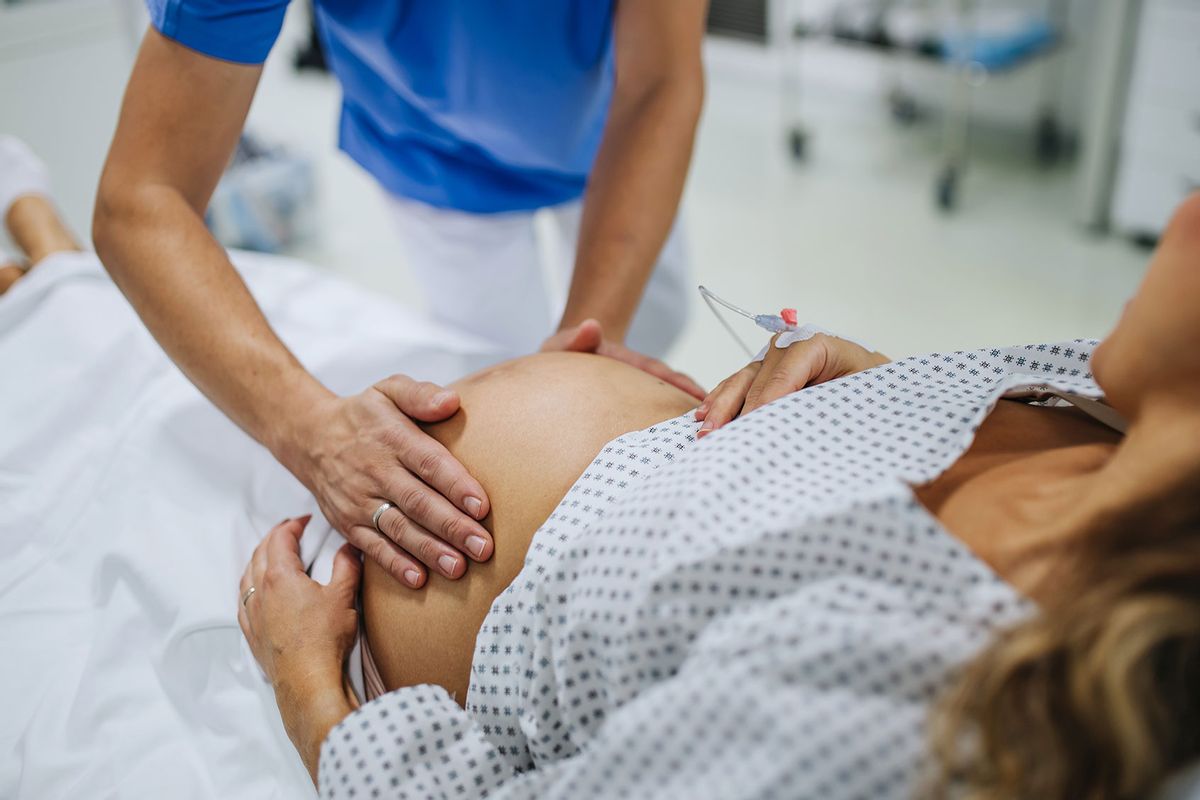It is well documented how strict abortion bans are negatively impacting standard prenatal care in red states. In Idaho, labor and delivery centers are closing, forcing pregnant women to travel longer distances to access care. At the same time, the state is facing challenges recruiting new OB-GYNs to care for pregnant patients. In Louisiana, standard pregnancy care has been disrupted in dramatic ways. For example, some pregnant patients are only being given the option of a cesarean section in emergencies so doctors can avoid the optics of performing an abortion.
But the effects of abortion bans post-Dobbs aren’t insulated to abortion ban states. They’ve caused a ripple effect and are affecting standard prenatal care in blue states. As experts watching the reproductive landscape change across America have told Salon before: “Any time there is a shift in access, it impacts the whole ecosystem.”
"I think there's even more of an emphasis on early genetic screening, at least to detect pregnancies that might be abnormal."
In some states where access to abortion remains, the restrictive landscape in other states has made them rethink doubling down on protecting access. Recently, Illinois Governor JB Pritzker signed a handful of bills expanding reproductive rights to maintain a high standard of care for pregnant people. In one bill, House Bill 581, the Illinois Department of Public Health now has the codified right to investigate hospitals for violating the Emergency Medical Treatment and Active Labor Act (EMTALA), which permits doctors to provide abortion care during medical emergencies. Another added protections to the state’s interstate shield law which protects people traveling to the state for reproductive services.
Shield laws, which say that courts and agencies won't cooperate if a state with an abortion ban tries to prosecute people traveling, have become an important tool for blue states. At least 12 states have laws shielding protecting medical providers. Data from the Society of Family Planning #WeCount found that after Dobbs, Illinois saw the biggest increase in out-of-state abortions, followed by Florida and California respectively.
Want more health and science stories in your inbox? Subscribe to Salon's weekly newsletter Lab Notes.
Dr. Arianna Cassidy, a maternal-fetal medicine physician at the University of California-San Francisco, told Salon as someone who works in the prenatal diagnosis space, there have been some changes in screening over the last couple of years.
“I think there's even more of an emphasis on early genetic screening, at least to detect pregnancies that might be abnormal,” Cassidy told Salon, adding that there is a consensus among physicians in California of “gratitude” that they can offer proper care in difficult situations — for example, if a fetus is nonviable.
According to KFF’s policy tracker, out of the 21 states that have abortion bans or early gestational limits,13 don’t have an exception for fatal fetal anomalies. “It would be incredibly challenging to make diagnoses and then not be able to provide the standard of care,” Cassidy said about her colleagues in these states.
As far as a surge in people traveling to California from out of state, Cassidy she has noticed more out-of-state patients post-Dobbs, noting that even though California is a state where abortion rights are protected, they see a lot of patients coming to San Francisco from other parts of the state where there is no abortion care.
“Women with complex health issues for whom pregnancy might be dangerous, or who just need extra care,” Cassidy said. “But also people who might have a fetal diagnosis, who just can't get care locally.”
We need your help to stay independent
Notably, data continues to find that abortion bans aren’t decreasing the actual number of abortions. According to a Monthly Abortion Provision Study, researchers found that the number of abortion in the U.S. increased by 10 percent in 2023 compared to 2020. In fact, abortion numbers were at their highest in 2023 in over a decade. Guttmacher Institute attributed the access to telehealth and increase in financial support to the rise despite abortion bans. In April, according to the Guttmacher Institute, an estimated 90,050 clinician-provided abortions took place in states without total bans.
But in blue states, perhaps the most significant difference in care is the obvious: there’s still a choice for pregnant women to terminate their pregnancies in their home state.
“The bottom line is that a pregnant person or a person with reproductive ability should have options, in states that do not restrict abortion access, these individuals have more options that enable them to make health decisions that may align better with their family and current life circumstances,” Dr. Melissa Simon, an OB-GYN at Northwestern Medicine, told Salon. “Whereas people who live in states where abortion is limited or fully restricted have fewer options that then limit their ability to make health decisions that may not align with their best health and family and life circumstances.”
Read more
about abortion
- Will Roe v. Wade ever be restored? How certain legal challenges could reinstate abortion protections
- How the Texas trial changed the story of abortion rights in America
- In Wisconsin, women’s health care is constricted by an 1849 law. These doctors are aghast
- Groups sue to overturn Idaho "abortion trafficking" law targeting teens



Shares